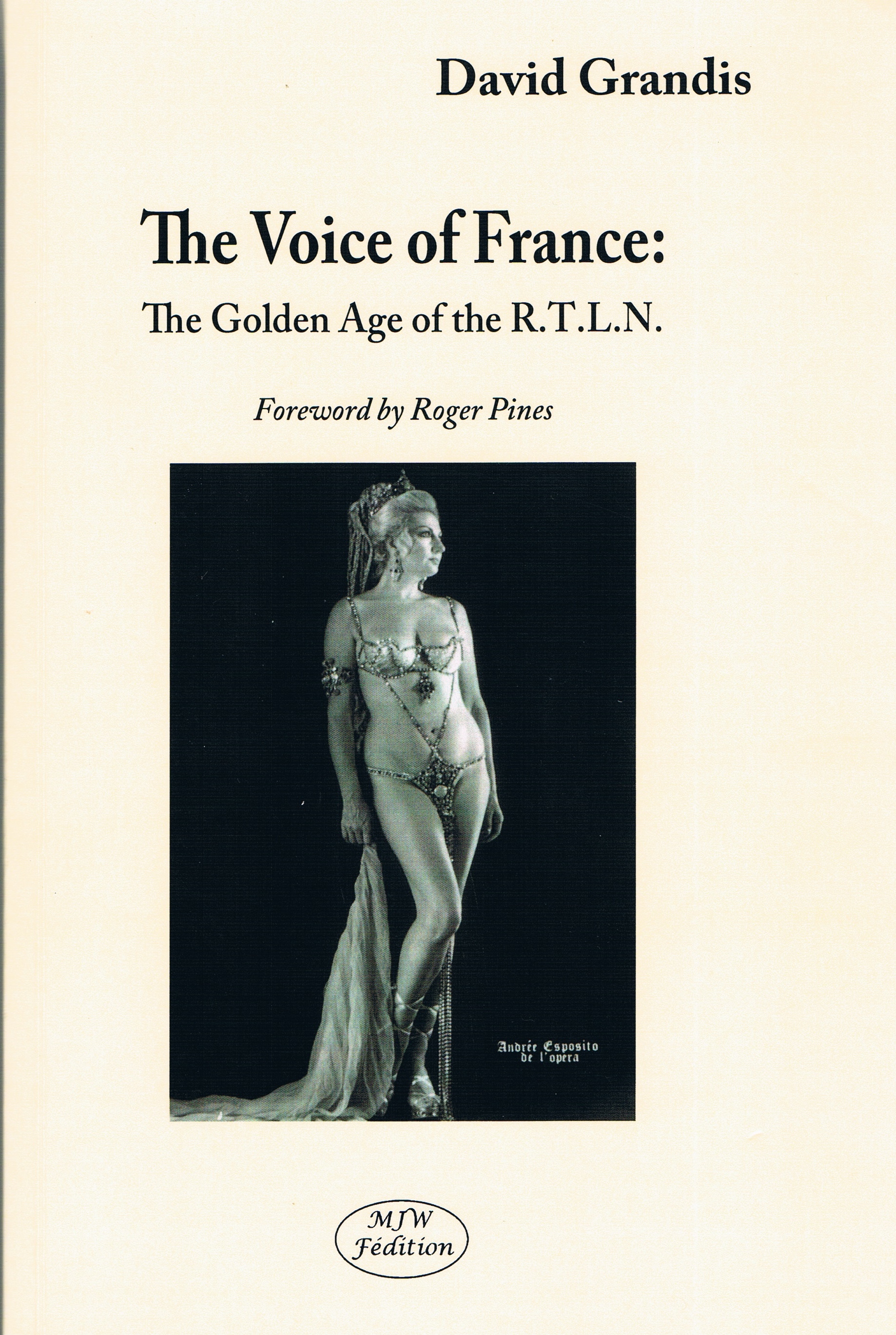
261 pp, MJW Féditions, Paris 2013 23 Eur/ USD 33
ISBN 979-10-90590-16-8
THE VOICE OF FRANCE
THE GOLDEN AGE OF THE RTLN by David Grandis

261 pp, MJW Féditions, Paris 2013 23 Eur/ USD 33
ISBN 979-10-90590-16-8
French language version available as well.
A French school of opera singing, which existed until about 1972, has given way to a more universal style, resulting in the loss of a national tradition. That’s the starting point of this book written by David Grandis who is pursuing an international conducting career. This work is based on the thesis for his doctorate degree in conducting at the University of Wisconsin-Madison. “It’s intended to assist singers, vocal coaches, opera directors, and audiences to understand what has been lost in a few generations and how it can be recovered.” At least so says the blurb. The first 99 pages are devoted to a definition of “French style”, placement of the voice, diction, declamation and the roots of the decline. There is a lot of technical detail which is not always easy or interesting for the general public. The twelve pages or so on ‘diction’ should be compulsory reading for anyone undertaking French repertoire.
I do have a problem with the usage in the book of the term “diction” which distinguishes itself from enunciation and pronunciation but I will further stick to the author’s choice of this term. I also disagree with Grandis’s conclusions vis-a-vis the roots of the decline. Grandis blames “acoustical challenges, stresses of modern careers, the deterioration of musical instruction in French conservatories, the disappearance of the French opera companies such as the iconic RTLN.” In my view it’s very simple: the decline of “French style” or many other ‘national’ schools started when they switched from performing opera in the vernacular to the original language. Many German-born opera singers have “lousy” German diction as compared to their predecessors as well. The other reason is the total neglect of tradition, as students or teachers do not listen anymore to their predecessors. Grandis has a valid point though, that with the disappearance of many opera companies, be it in France, Italy, or even Germany, young singers don’t have an opportunity anymore to grow in their career. With the decline of opera’s popularity it will only get worse.
The major bulk of the book consists of interviews with 16 singers (Doria, van Dam, Sénéchal, Esposito, Sarocca, Bacquier, Mesplé, Cadiou, Liccioni…..). Every interview is preceded by a small biographical outline and a black and white photo. Some interviews are more interesting than others but, that’s to be expected. Mind you, most of the questions are technique or style related, and occasionally - and luckily- seasoned with an anecdote. Nobody seemed to like Georges Pretre as a conductor, and all of them except one were against –thank God- singing a uvular ‘R’.
The remainder of the book has an appendix of singers (non-exhaustive) recommended for their French “diction” and I had to wonder why so and so are included and others are not. What were the criteria for inclusion? Personal taste? Recordings? Some of them didn’t make them. Reputation? For several of them –what the author calls the “second golden age 1942 – 1972- David Grandis himself is too young to have heard them. Charles Hacket is included but Charles Dalmorès is not. Litvinne's biography is quoted in the bibliography but her name is not included in the list either. Willy Clement is there (rightfully so) but Edmond is not (not rightfully so). Some odd choices there. For more names who are missing see my youtube 'collage' beneath. Moreover, and surprisingly, some singers are included who are “dished” by the interviewees themselves for imperfect “diction”. Lubin and Micheau are two of them.
The author concludes his opus with another appendix devoted to the French lyric repertoire from 1800 to 1950. Luckily he added a discography (not complete and pretty inconsistent) but sadly enough he neglects DVD’s. Here and there the book could have used some editing. For instance Del Monaco did not start as a baritone and Roberto Alagna has not yet sung “Samson et Dalila” (pg. 163). In the Berbié bio it is stated she sang Rosine in “Il Barbieri di Siviglia” which is just one example of the lack of consistency in using either the original or the French translation of the work, and Charles Burles sang Aruro in “I Puritani,” and Strasbourg is spelled differently all over. The book has no index.
RvdB
MORE SINGERS NOT INCLUDED IN THE BOOK'S LIST OF RECOMMENDED SINGERS
<
<